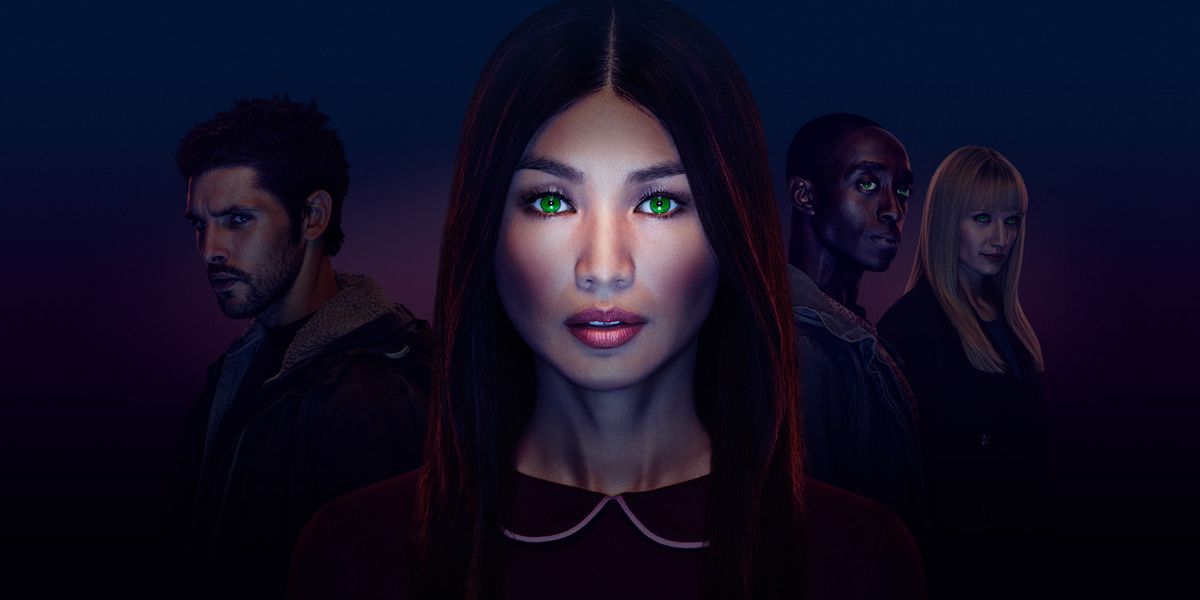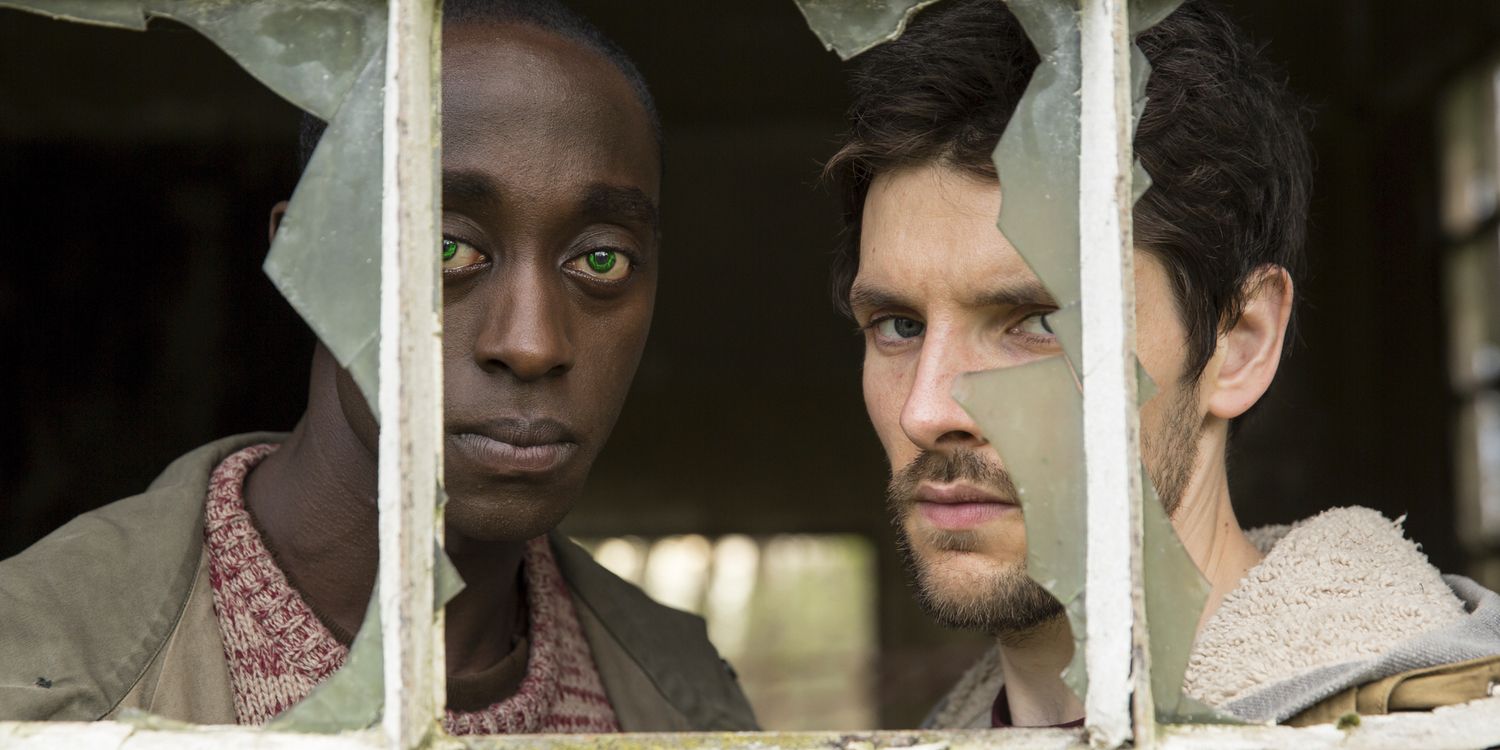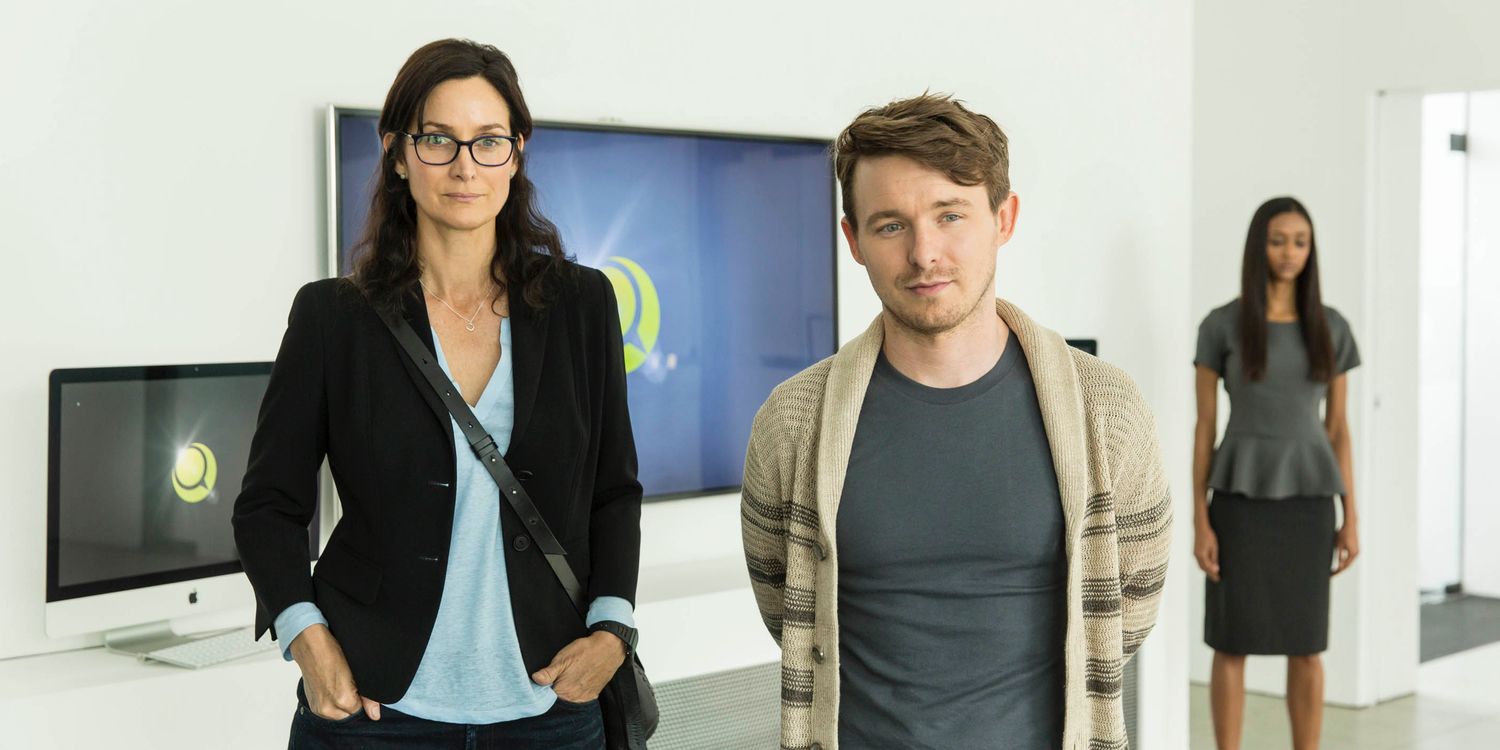The question of artificial intelligence and the singularity is the hot television narrative right now. HBO's mega-budgeted and twisty Westworld took the idea of sentient machines and dropped it into a puzzle box that continued to fold in on itself thanks to its two creators, Jonathan Nolan and Lisa Joy. Elsewhere, Charlie Brooker's technophobic anthological nightmare Black Mirror has similarly tackled the concept of humankind creating a new, potentially threatening form of life with predictably pessimistic results. But AMC's British import Humans takes a decidedly different approach to the singularity and it comes away with an altogether more… well, human take on the increasingly prevalent narrative.
Rather than keep its characters hidden behind secrets the internet can pick apart weeks in advance, Humans wears its characterizations, emotions, and its larger intentions on its sleeve. The result, then, is a series more concerned with the global and interpersonal impact of the rise of not only sentient robots but also human-like machines being further integrated into everyday life. The series takes an interesting dual perspective. It is both a techno-thriller in the same vein as any story having to do with the emergence of artificial intelligence, as the primary Synths, Mia, Max, Theo, and Niska begin a quiet revolution of self-aware beings, and a study of the socioeconomic disturbance caused by the introduction of near-perfect machines into the workplace.
The series' willingness to dig deeper into the singularity and attempt to demonstrate the slow blow by blow account of humankind being surpassed and replaced by its own novel creation is ultimately what sets Humans apart from the other contenders for the AI on TV throne. It doesn't necessarily put the series in the coveted seat, but it does afford the show and its viewers a welcome respite from the more typical action- or mystery-oriented storylines deemed necessary to make the subject matter more palatable.
Season 2 picks up a short time after the events of the season 1 finale, long enough for the series to shift characters around a bit, but not long enough for their situations to be radically different. The premiere wisely puts the focus on Niska and her decision to upload the consciousness program to the Synth network. Niska's disdain for humans seems to have waned somewhat, while the drive to lead her own life has only grown. While in Germany, she strikes up a relationship with a human woman named Astrid, and uses the relationship to help guide her toward a decision that may or may not change the course of humankind forever.
Niska's decision makes for a prime example of how a typical Humans narrative works. Rather than drag the question of will she or won't she upload the consciousness program for several episodes, she simply does it about halfway through the hour. The series aims to make sweeping changes with as little pomp and circumstance as possible. This minimalist approach can make certain major narrative beats read as underwhelming, especially when the file transfer goes off without a hitch in a random internet café. But it soon becomes apparent that underwhelming experience is what the show intends to convey, as Niska checks for signs of consciousness in a clerk to no avail. The show's big moment fizzles deliberately. As it turns out, Humans has different plans for how the Synth upgrade is going to work: the AI revolution won't happen all at once, but rather in fits and starts as it has done before. First with a doomed South American Synth who discovers he has an odd attraction to the word "radiator", and later with a worker who, for the time being, will go by Hester.
It feels a little like a cheat, but then again so does the idea of consciousness as an uploadable computer program. The decision to rollout Synth consciousness one newly self-aware individual at a time initially reads like Humans is steering away from its raison d'être when it's really cruising along an intended path. For as much as Niska is – and to a lesser degree, Leo and Max are – inclined to kickoff the transformation of their fellow Synths into throngs of sentient beings yearning for freedom, the series is more interested with the tension and fear that results from some of humankind perceiving a proverbial storm on the horizon, a storm that approaches from two fronts.
In season 2, the plot is split further between suddenly self-aware Synths dealing with the ramifications of consciousness and the impact technology is having on the workforce and the lives of more or less regular middle class. It's the latter that gives Humans a leg up on its AI-obsessed competition. The series intends to take place in as close an approximation to the real world as it can, and by focusing more on the consequences of technology being introduced into the workplace, the series justifies the role the Hawkins family continues to play in the series. The domestic strife of season 1, which saw Mia playing a disturbing role at the center of a marriage on the rocks, and in a situation intent on exploring the push-pull of career and family for matriarch Laura. This time, that is largely supplanted by Joe being replaced at his job by a Synth, while trying to atone for his actions during the previous season.
The degree of difficulty in balancing these various plots with the addition of Carrie-Anne Moss as Dr. Athena Morrow, a San Francisco-based researcher who has made her own strides in AI research seems daunting initially. The series is able to conjure intrigue in varying ways, hinting that Morrow is hiding something from her potential new employer, the borderline obnoxious tech-guru Milo Khoury. But it also generates plot through the introduction of a secret group bent on exterminating self-aware Synths, and Niska's decision to be held accountable as a human would for the crimes she committed in season 1. It's ambitious storytelling on a larger scale without necessarily requiring the series to become a more unwieldy storytelling machine.
The simple, deliberate pacing Humans season 2 presents in its first hour is enough to get the gears of the machine turning again; some of them in unexpected ways. Moss' addition fills the spot left by William Hurt, but adds a measured and clinical coldness to her outward demeanor that's in opposition to Hurt's emotionally motivated Dr. Millican. The contrast is as noticeable as it is welcome, guiding the series to ask bigger and bigger questions while keeping its storytelling canvas relatively compact. The result is a sharp start to season 2 that probes the impact of pending change through avenues not typically covered in sci-fi entertainment.
Next: Westworld: Similar Shows, Movies, And Comics You Should Check Out
Humans continues next Monday @10pm on AMC.



